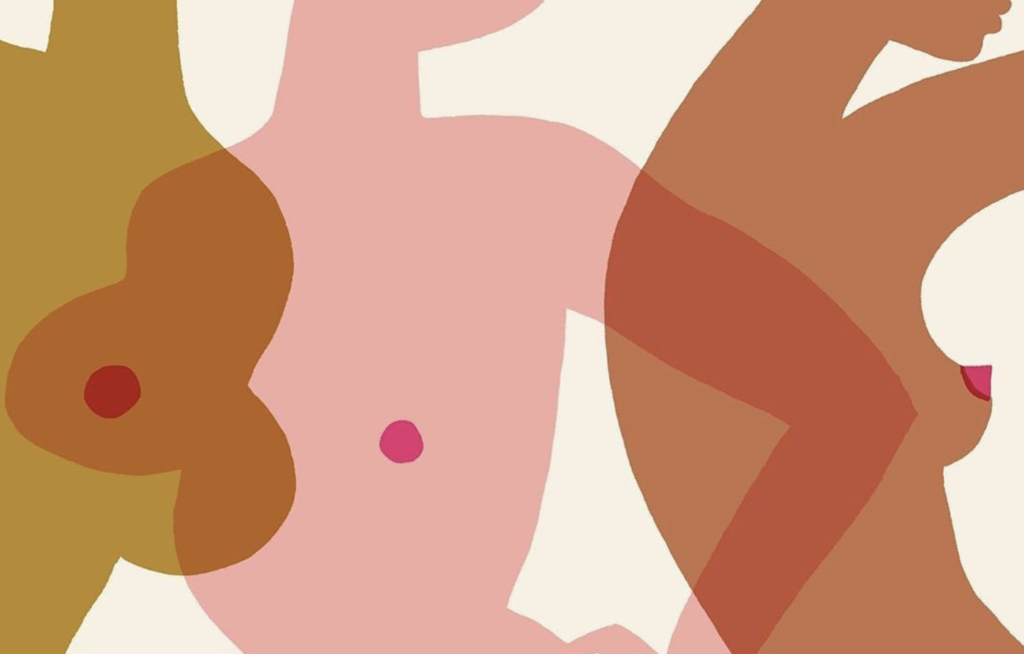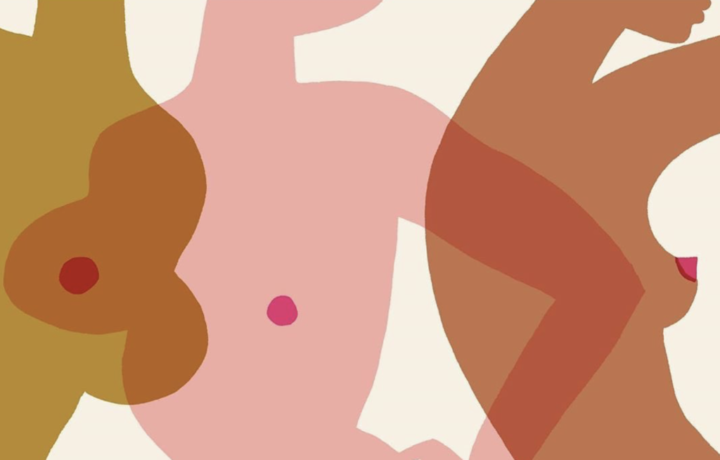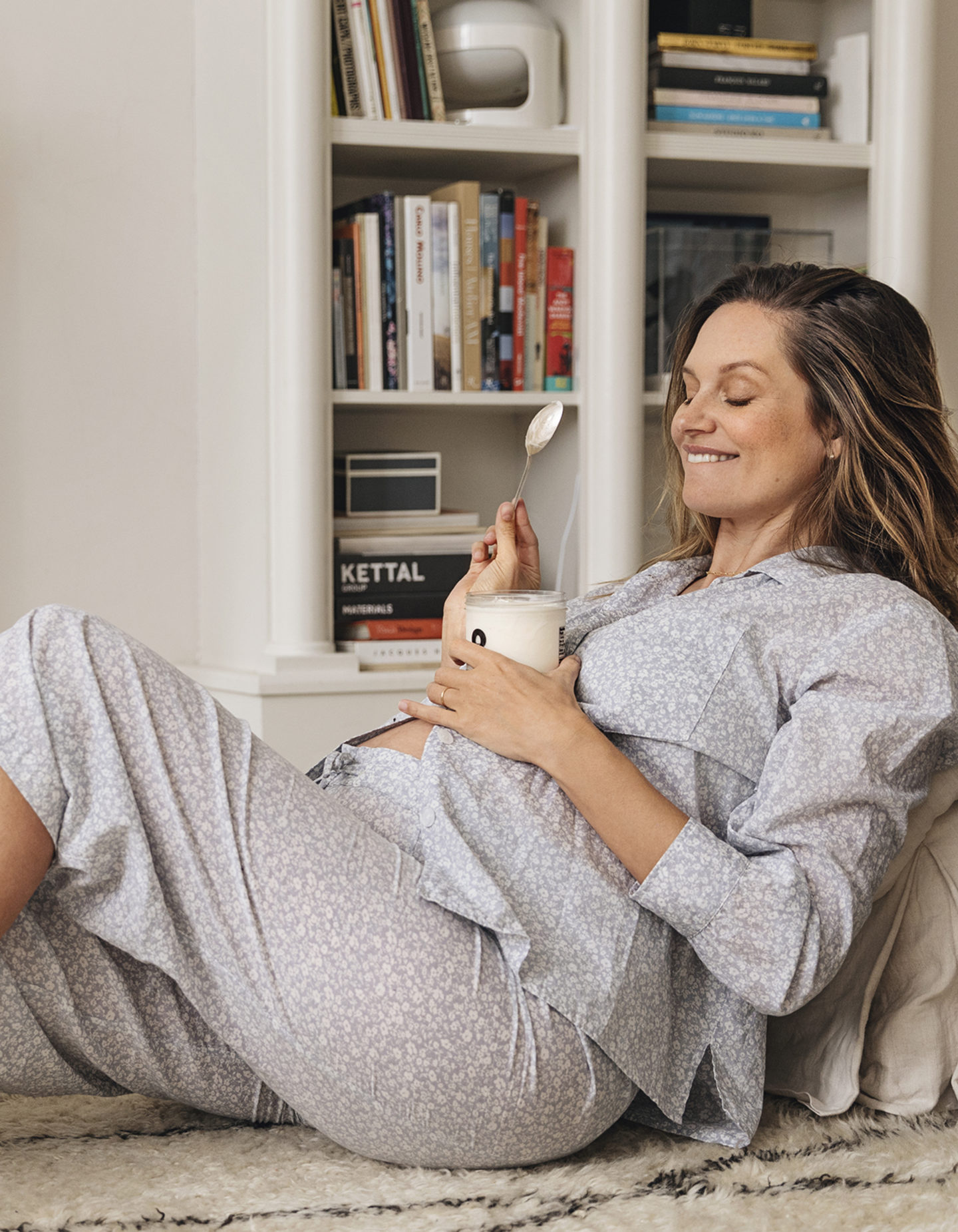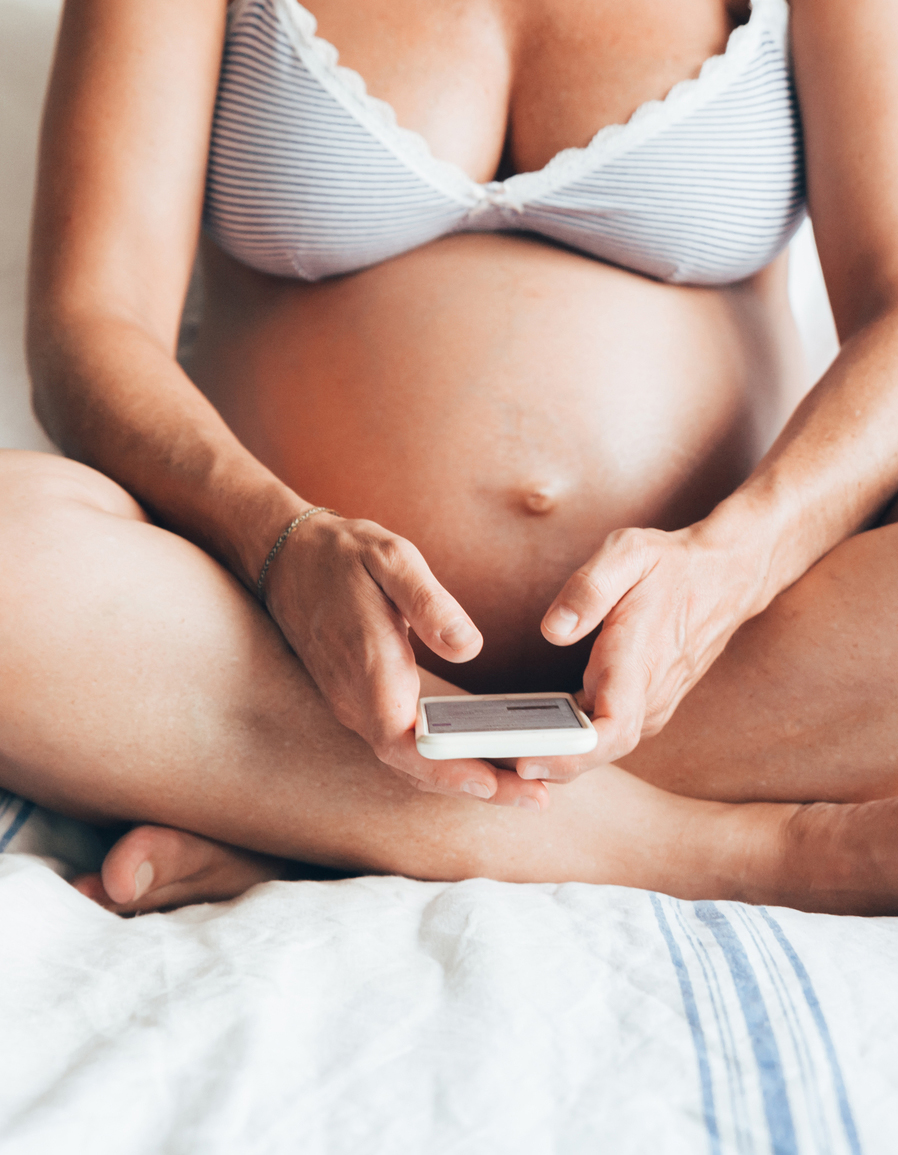In the healthcare community, the correlation between pregnancy and breast cancer risk is pretty well-known. However, this message isn’t often prioritized for new moms. So, in honor of Breast Cancer Awareness Month, and with the mission of resourcing and empowering all mamas, we’re bringing you the facts in assessing your risk and protecting yourself while on your new mama journey. We asked our HATCH Healthcare Advisor + Certified Nurse Midwife Lauren Zielinski to share how you can detect breast cancer risk as early as possible and make small lifestyle changes to lower your chances.
—
As a certified nurse midwife + high risk labor and delivery nurse, I’ve worked with various populations of women throughout my career. With that in mind, before we talk risks, remind yourself that every woman has her own genetic makeup and story to tell with her body. Additionally, I don’t want this article to scare you — remember that while some risks increase with childbearing, there’s no recommendation that not having children is any safer. What I hope you take away most is how to become aware of your own body and understand the action items to help ensure you have the healthiest possible outcome.
THE FACTS
Breast Cancer x Pregnancy: A Complex Relationship
So, here’s the deal mamas: having children actually increases your risk for breast cancer in the first few years of delivery relative to someone who’s never had a baby. This risk dissipates over the following 10 years postpartum. After that, having given birth is actually protective against developing breast cancer in the future versus those who’ve never had a baby. Why? We don’t completely know, but some researchers believe it’s likely due to the effect of higher hormone levels on cancer development and the rapid growth of breast cells during pregnancy.
Breast Cancer x Breastfeeding
Believe it or not, there is actually a decrease in risk for breast cancer in those who choose to breastfeed. Breastfeeding actually has direct effects on your breast cells, causing them to differentiate and mature — which some scientists theorize can actually help defend against cancer cells. Pretty amazing, right? Breastfeeding for one year reduces your chance of developing breast cancer, and each year after that doubles your protection, so the longer you want to breastfeed, the better! For those mamas who choose not to breastfeed or can’t, do not fret — you are not alone and this is about knowing the facts and assessing your risk!
Breast Cancer x Waiting for Babes
We live at a time where the average childbearing age has increased, and it’s super common to wait until your mid to late 30’s or 40’s to get pregnant. So many of my amazing patients have made this choice to delay or reduce the amount of kiddos that they want to have over the years. And to be honest, I’ve done the same myself. The fact is, age does carry higher risk of developing breast cancer. What is the risk exactly? Women who have had children at 20 and 25 decrease their risks by 10% and 5% respectively, while women who have children after the age of 35 have a 5% higher risk of developing breast cancer. And on top of it all, the more children you have, the lower your risk. Regardless, no recommendation says that you shouldn’t have kids within any age bracket, so breathe easy mamas. It’s important to look at the whole picture.
Note: a great reference for more stats on this topic is the National Cancer Institute.
THE ACTION
You may not know this (most people are shocked!), but over the past ten years, the guidelines have changed a bit for breast exams in office, breast self-examinations and mammograms! So, I’m here to help you out. The takeaway for all women is to get to know your body.
Know Your Risks
First thing’s first — get on the phone with your female relatives and double check your family history for breast cancer. If you don’t know your family history because of adoption or estrangement, ask your doctor to discuss a personal strategy. You’ll want to find out:
– If any of your blood related family members has ever been diagnosed with breast cancer, ovarian cancer, tubal cancer, or cancer of the peritoneum.
– If you are aware the BRCA Gene (1 or 2) runs in your family
– If you have ever received radiotherapy (radiation) treatment to your chest between the ages of 10 and 30.
Take on Breast Self-Awareness
The big news you may not know about: once per month “Self Breast Exams” and annual clinical breast exams have actually gone away as a recommendation and providers are now encouraging something called “breast self-awareness.” Why? Because self breast exams actually did not prove to save lives but rather were found to cause more false positives and stress for women who had a hard time keeping up.
This means that rather than just checking in once-in-awhile, it’s time to get very familiar with what is normal for your breasts as an everyday exercise. Being mindful and tuned into what is typical for your body is especially important postpartum with that slightly elevated risk. What is normal for you won’t be normal for something else — so take a good feel of your breasts (like right now, sister!) and make a mental or physical note of what they look and feel like. Where is there bumpy, fibrous, glandular or soft tissue? Where isn’t there? It’s also a good idea to remember to compare side to side. For example, if you feel a weird lump or bump – check the other breast in the same spot – if that same lump is present on both sides it’s likely normal anatomy.
(And don’t forget the old saying that two eyes (or sets of hands) are better than one – if you’re partnered, ask them to get in on the fun.)
With this new mindfulness, you’ll want to be on the lookout for a hard, pebble-like lump, nipple discharge other than breastmilk, swelling, a sudden change of breast shape or swollen lymph nodes in the armpit. What can be challenging for postpartum mamas coming off of breastfeeding is that many of the other signs of breast cancer (such as nipple pain, redness or increase in breast size) can be masked, so staying in tune with your body will also come into play here during pregnancy, breastfeeding and after. Remember that if you’re ever unsure, make an appointment with your midwife or OB ASAP and get a second look.
Breast self-awareness is recommended for the length of your life, so make it a habit! Once you turn 40, it’s time to add mammograms to the routine every 1-2 years as well. The research is back and forth on how often you should receive mammograms, so discuss with your provider what this looks like for you.
Decrease Your Risk Factors
Research shows that a healthy lifestyle is one of the best ways to reduce your breast cancer risk. Not only is there a correlation between fat tissue and estrogen as related to breast cancer, but women who exercise just 2.5 hours a week lower their chances of developing breast cancer by 10-20%. THAT’S HUGE! While it can be hard to incorporate exercise into your daily routine as a new mama, even small changes like taking the stairs or walking on your lunch break adds up. It’s pretty important to stay healthy for these sweet babes we’re bringing into the world — talk about motivation! While life can certainly be a roller coaster of non-stop business, it’s so important to take good care of yourself so you’re present and healthy for your family later.
Beyond exercise, try to limit your alcohol intake. We all love a good glass of vino, and you totally deserve to relax right now. However, the data is pretty striking. In a research study that looked at data from almost 150,000 women – those women who drank 2-3 alcoholic beverages per day had a 20% higher chance of developing breast cancer, and with more drinks the risk increases. So, grab that night cap with your partner from time to time but try to leave it there by shifting to another relaxing activity (like drawing a bath for a few minutes of alone time and taking deep, mindful breathes!).
Don’t Wait
If you do anything at all, be prompt, mama. If you know you have a family history, if you feel a lump, or if you have a concern – do not not procrastinate. Life can get so busy, especially as we juggle kids and partners, but the best thing you can do for yourself is to take the time to get the information, screening, and care. It feels so good to know. Even just reading this article should help you feel a little more prepared! Be aware of your risks, your breasts (very well!) and book appointments on time – you deserve it and it could save your life.




